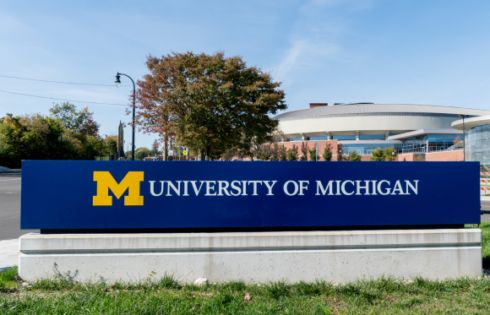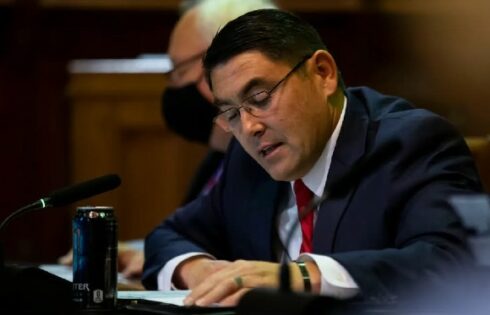
Events include ‘mindfulness to ease climate anxiety,’ ‘climate-focused’ art festival
Western Michigan University is hosting a semester-long “emergency” climate change campaign to encourage students to take action on the “crisis.” It includes an event focused on “climate action” in connection to “Mother Earth.”
Environmental Professor Steve Bertman told The College Fix via email the WMU Climate Change Working Group created the months-long campaign “thinking that a single event is easy to miss or even to ignore.” The group includes faculty, students, staff and community members.
The goal is “to educate people about the threat the climate crisis poses and to build the movement toward urgent and rapid action to head off the worst consequences,” Bertman told The Fix last week.
Through “Climate Emergency: Spring into Action 2024,” the university wants to “inspire” students to become more involved in the issue, according to a university news release. It cited a 2021 Pew Research survey that found 76 percent of young Americans consider climate change a big concern, and more than a third say it is their top concern.
“Students will have opportunities to write to legislators, practice techniques to ease climate anxiety, build plant-based snack boxes and learn about sustainable farming at various events planned throughout the semester,” according to the news release.
A seminar scheduled for April 10, “Breathe the Change: Using Mindfulness to Ease Climate Anxiety,” will explore “the impact of climate anxiety, its racial implications, and transformative practices to promote personal and planetary health,” according to the event listing.
The WMU Climate Change Working Group also has a page on its website that lists resources to help people struggling with climate anxiety.
Other events include the workshop “‘Water is Life:’ Indigenous Approaches to Climate Action in Relationship to Mother Earth,” which will focus on “traditional ecological knowledge, culture, relationships, and spirituality inform indigenous responses to the climate crisis.” The workshop will take place after a traditional Native American water ceremony at Goldsworth Valley Pond, according to the event listing.
MORE: CU Boulder professor dresses like butterfly to fight ‘climate anxiety’
Paul Clements, professor of political science and member of the Climate Change Working Group, told The Fix last week the group hopes to inspire political action as well through the campaign.
“People should be worried enough to take political action to reduce net global carbon emissions to zero by 2050, to support adaptation to effects of climate change, and to support people forced to abandon their homes due to these effects. These will require government leadership nationally and internationally,” Clements said via email.
Bertman told The Fix he believes political action is important because climate change is “an existential threat to all life on planet Earth.”
“Climate change is not inherently a political issue, but it has been made political by a well-funded misinformation campaign that has distorted and dismissed science and the very clear message that has been communicated for at least four decades about the threats posed,” he said. “Politics IS the biggest obstacle the world faces toward acting to mitigate climate change.”
But Daren Bakst, director of the Center for Energy and Environment at the Competitive Enterprise Institute, expressed concerns about the campaign in a recent email to The Fix.
“If a university itself is leading something called a climate emergency campaign, then this sounds like indoctrination, not education,” Bakst said.
Bakst told The Fix higher education is supposed to be a marketplace of ideas, but campaigns like this seem to promote only one view.
“Assuming a university is leading a one-sided campaign, this will inevitably chill speech,” he said. “After all, that university will have said what it thinks is right and students will respond accordingly. They will be scared to counter the views from people who are in positions of authority.”
Meanwhile, many prominent environmental scientists say the dire impacts of climate change are exaggerated.
In 2023, more than 1,600 scientists and scholars signed a declaration that argues against the alleged crisis, including that carbon dioxide is not a pollutant and is actually “plant food” and “the basis of all life on Earth,” The College Fix reported.
MORE: Scientist says he left out ‘full truth’ to get climate change paper published
IMAGE: Nicholas Lamontanaro/Shutterstock
Like The College Fix on Facebook / Follow us on Twitter






Please join the conversation about our stories on Facebook, Twitter, Instagram, Reddit, MeWe, Rumble, Gab, Minds and Gettr.